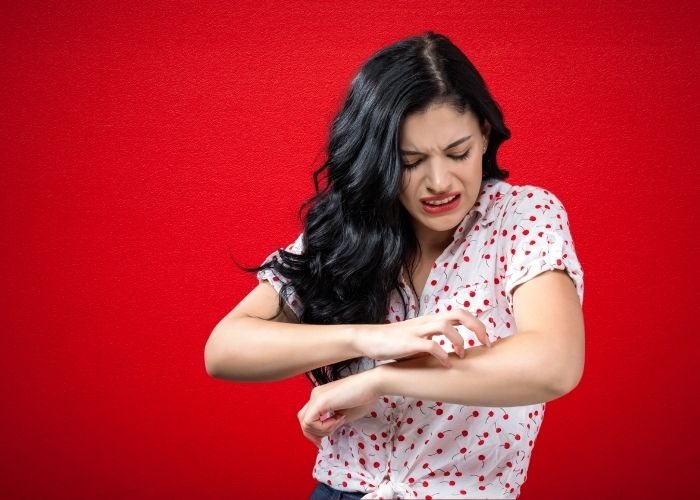A Spanish environmental association is sounding the alarm because of pests of the Mosca Negra (the tickling mosquito) in Spain. Populations of this insect have increased dramatically in the past week following the heatwave in Spain. The association provides advice before and after a bite.
The heatwave that has ravaged Spain in recent times has left its mark. As such the extremely high temperatures of the past few days have resulted in an increase in the tickling mosquito. While the name may sound cute at first, it’s actually becoming a plague in some parts of Spain, reports ANECPLA, the National Association of Health Companies.
Insect plague already in four Spanish regions
The mosquito infestations have mainly been recorded in Aragon, Catalonia, Valencia, and Madrid, especially on the banks of rivers. Because these are the places where these insects reproduce. The director of ANECPLA says that high temperatures are one of the factors that cause an extreme increase in the population of the tickling mosquito.
What exactly is the mosquito bite?
Mosquitoes are small, black, or orange-red to gray insects with short legs and antennae. Furthermore, they are recognisable by their small wings. The body length varies from 1 to 5 mm. In recent years, people are increasingly bitten by this type of mosquito.
A mosquito bite is not only annoying because it can cause pain or even an allergic reaction. But the mosquito can also spread infectious diseases in this way. In many cases, after a bite, there is a bruise and/or swelling that can last up to a month after the bite. In some cases hospitalisation is required.
How to prevent a bite from the tickling mosquito?
The association is committed to preventing the growing populations of tickling mosquitoes. However, there are also things people can do themselves to prevent bites. ANECPLA advises wearing light-colored clothing, not going near rivers, placing mosquito nets in front of doors and windows, covering storage areas for water (swimming pools, wells, etc.), and using protective equipment, preferably with citronella.
What to do after a bite from the tickling mosquito?
The association advises people not to scratch after a bite as this will only aggravate the itching or pain and can lead to infections. The advice is to cool with ice or use a cream especially for this type of bite. When in doubt, the organisation advises consulting a doctor.


